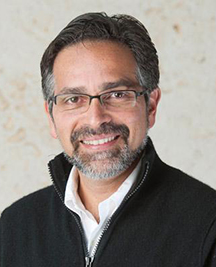Message from SDB President Alejandro Sánchez Alvarado
Posted by Marsha Lucas, on 25 February 2020
The following message by Society for Developmental Biology President, Alejandro Sánchez Alvarado (Stowers Institute for Medical Research), was originally posted on the Society for Developmental Biology website February 24, 2020.
Dear Members and Friends of the Society for Developmental Biology,

We are living in interesting times. Technological advances are moving at neck-breaking speed: artificial intelligence, machine learning, neural networks, quantum computers, advances in optical and electron microscopy, machine miniaturization and gene editing… a list that seems to grow geometrically with every passing month. From the look of it, both lay and scientific publications seem to herald the advent of an age of technological wonders in which previously inaccessible biology is now tangibly within our grasps.
And yet, as a species, we are also facing record challenges. For us biologists at large, and developmental biologists in particular, we are witnessing changes to our planet’s biome that are without precedent in human history. We are witnessing rapid decreases in biodiversity in ecosystems around the world, expansion of species into new territories along with the attendant displacement -even extinction- of endemic organisms that usually follows, and the perturbation of natural processes caused by unnatural warming, acidification and microplastics. The current global environmental deterioration should make us pause, not just as individuals, but particularly as developmental biologists, for where would our field be without the many research organisms we brought from nature into our labs?
Yes, these matters may not appear to be of direct concern to developmental biology. I would argue they should be. For most of the 20th century, modern developmental biology has been limited to the study of a handful of organisms in great part due to the absence of technology that prevented us from taking a more systematic and global approach to understanding fundamental aspects of developmental processes. That limitation is no longer as daunting. Why then should we continue to bring nature into our labs when it is becoming more and more practical to bring our laboratory sophistication to nature and study development there instead?
The accomplishments of our field thus far have been numerous. Developmental Biologists uncovered the fundamental underpinnings of gastrulation, pattern formation, tissue polarity, organogenesis, sex determination, epigenetics, aging, apoptosis and cellular reprogramming, among others. It is easy to forget, yet important to remember that it was Developmental Biologists who first isolated and cultured stem cells and cloned animals. Morphogens, the genetic unravelling of the major signaling pathways by which cells communicate with each other, RNA-mediated genetic interference (RNAi), microRNAs, the fundamental principles of differential gene regulation, all of them discovered by Developmental Biologists. Importantly, Developmental Biologists not only have introduced technological advances to the study of life such as in situ hybridization, genome manipulation and in vivo imaging, but our discipline has also created the context in which to understand human birth defects and disease.
Now, take a second and imagine the immensity of what we can contribute in this century to address pressing global problems by merely expanding our interrogation of development into unknown and/or understudied organisms. Organisms with which, by the way, we share profound evolutionary ties. Simply put, we have but barely scratched the surface of development: we do not know what is possible. The sheer number of species out there waiting to show us what is indeed biologically possible is staggering. Nature has done many more experiments than any of us can fathom, each extant species a unique interpretation of evolution. Equally remarkable is the fact that our species has the necessary tools to decode and understand them all if we so wished. In fact, merely expanding our knowledge of developmental processes in as many species as possible would stand to provide unimagined knowledge, which would result in–in the words of Abraham Flexner–“undreamed-of utility”.
There is an essential role discovery researchers play in the well-being of science and society. The vitality, longevity and, therefore, relevance of the biomedical sciences is ultimately and intricately dependent on the combined efforts of present and future scientists who are averse to neither risk-taking, nor effectively communicating their work to the general public. More than ever, we in the Society for Developmental Biology need to bring a strong and contemporary approach to meet the challenges facing our current members, and to actively participate in national discussions that affect our research, education and outreach activities. That is why our annual meeting will include in its program scores of early career investigators and a selected number of topics not traditionally considered to be part of our discipline. At the very least, I am quite certain that we will likely leave our annual meeting with a host of new ideas and perhaps new ways of looking at our own science.
I believe that the time is coming when developmental biology will be needed to inform and contribute to the study, and more importantly, to the solutions of some of the major problems affecting the health of our planet and its biome. I am delighted to serve as our Society’s president and to continue to drive forward the major goals of the SDB: to support talented investigators at all stages of their careers, stimulate the exchange of scientific information, and promote a research environment where developmental biologists can achieve their best work.
I am very much looking forward to seeing all of you in Chicago in 2020.
Alejandro Sánchez Alvarado, Ph.D.
President, Society for Developmental Biology


 (5 votes)
(5 votes)